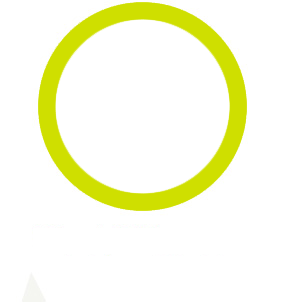Valda Boyd Ford is Passionate About Diversity
Valda Boyd Ford is Passionate About Diversity
Today’s Omaha Woman (July 2008)
By Wendy Townley
Since working as a critical care nurse in Saudi Arabia, Valda Boyd Ford has spent much of her life understanding the differences between cultures.
Growing up in segregated North Carolina, Valda believed she had precious few opportunities as a young African American girl. But time spent working alongside her mother in a beauty salon introduced Valda to a safe environment where she discovered futures beyond minimum wage employment.
“They were really wonderful women who worked very hard and endured a lot of what I call daily indignities, but they still had hope. They still had joy,” Valda recalls of the clientele, many of whom worked in the nearby cotton mills. “They still believed that life held something good for them, so I learned things in those contexts.”
After completing nursing school and being recruited for a nursing position in Saudi Arabia, Valda packed her bags for a two-year employment opportunity a half a world away. It would be the first time the 27-year-old left the country and experienced a new culture where women were treated differently than men.
“I couldn’t drive, I couldn’t talk to men since I wasn’t married,” Valda recalls. “We lived on a compound and had a curfew every night. And the only transportation was buses that my company provided. It was none of that independence I was used to in the United States.”
In addition to the culture shock, Valda had to learn to live and work with nurses, physicians and other medical personnel from 33 countries around the world.
After two months on the job, political unrest between the United States and Israel ensued, forcing her employer to leave the country. A health care facility that once employed 1,700 people was diluted to just 675 employees. Valda went from a critical care nurse, with just three years of experience, to a nursing supervisor. Her duties included continual education and managing an assessment system for the staff. The task was challenging, as Valda quickly discovered, because her pool of employees came from such a variety of countries and backgrounds.
One of Valda’s more prominent memories was when a colleague, in front of several other employees, mentioned to Valda he stopped by her room the previous night to “knock her up.”
Valda was mortified and turned crimson, until she realized that, in London, the phrase “knock up” means knocking on one’s door. It was certainly a light bulb moment that stayed with her for years.
“That helped me say, what types of problems are we having here with basic human communication, let alone the clinical side?” Valda recalls.
She made quick work of a glossary for the staff that explained hospital terminology, and that would be one of the first projects that would lead to her current profession in Omaha.
After professional stops in the U.S. Virgin Islands, the Creighton University School of Nursing and the University of Nebraska Medical Center, Valda established the Center for Human Diversity.
As a nonprofit organization that develops customized training programs, Valda provides consultation to improve organizational leadership, workforce performance, recruitment and retention, diversity initiatives and cultural competency.
Valda works with companies and nonprofit groups from all sizes around the country to better understand cultural diversity in the workplace and how to develop skills, policies and procedures that work in the system.
Her work often begins with individual assessments and an environmental assessment, to better grasp the state of the organization. She often asks the tough questions: Are women being treated with respect? Do minorities have opportunities to succeed?
Valda often then takes the data to create an action plan for the group.
She doesn’t believe in knee jerk reactions or mandatory training when it comes to diversity education.
“A lot of people just want to be able to check off a box, to show that they did something,” Valda explains. “Some people do it because they are bound by federal or other regulations or accreditations. Some do it because it’s a good thing to do.”
She points to the fact that companies that truly embrace diversity and understand cultural competency make more money in the stock market, have better access to partnerships and collaborations and are less likely to lose money from litigious incidents.
Omaha, for example, is becoming an increasingly global marketplace, Valda says, as people visit the city for health care, education and military experience. In other cases, Omaha has become a secondary resettlement site for refugees.
“We are going to continue to get groups who are from Africa and Asia and South America who end up being in places where they are treated poorly, and they need respite,” she explains. “They need refuge.”
Valda also points to the 70-plus languages spoken by students in Omaha Public Schools.
“Why do we think the ‘one size fits all’ concept we’ve used for the last 200 years is OK to move forward? It’s not,” Valda says.
She loves the challenges such work provides and, at 53, is selective about which groups she elects to help.
“Some groups want change to take place immediately, to sing ‘Kumbaya,’ hand out the T-shirt and hat,” she explains.
She’ll often say no to groups such as this, where Valda says she’s asked to act as a “Band-Aid for a gaping wound. I’m not interested in wasting time with people who aren’t interested (in long-term change). I don’t want to do anything ever again in my life that doesn’t bring me joy or satisfaction. I must see the reason for the work.”
Today’s Omaha Woman on the Web: www.omahawomensfund.org/publications_tow.html
